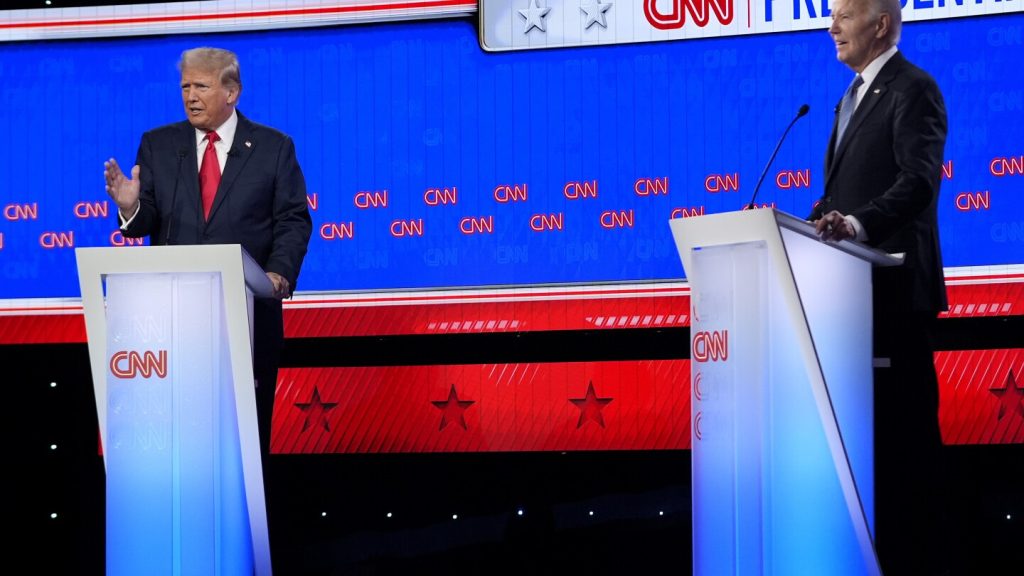Presidential debates are often unpredictable events that can make or break a candidate’s chances of winning an election. With the upcoming debate between Vice President Kamala Harris and former President Donald Trump in Philadelphia, the pressure is on for both candidates to deliver strong performances. Alan Schroeder, author of “Presidential Debates: 50 years of High-Risk TV,” emphasizes that anything can happen during live television debates, making them must-watch events for voters.
One of the most memorable debate moments in recent history was when President Joe Biden faced off against Trump in Atlanta. Biden’s performance was marred by frequent coughing, stumbling over his words, and losing his train of thought. Despite initially blaming his poor performance on a cold and jetlag, Biden eventually dropped out of the race and endorsed Harris. This highlights the importance of staying sharp and focused during high-stakes debates.
A classic example of a politician turning a potentially damaging moment into a memorable one is President Ronald Reagan during the 1984 debate against Walter Mondale. When asked about his age and ability to handle major challenges, Reagan famously quipped, “Not at all,” before delivering a well-rehearsed response that left the audience laughing. Reagan’s humorous approach to addressing his age became a defining moment of the debate and helped him secure a landslide victory.
However, not all candidates are able to recover from debate gaffes as successfully as Reagan. Republican President Gerald Ford’s declaration that there was no Soviet domination of Eastern Europe during a 1976 debate was widely criticized and contributed to his loss in the election. Similarly, Mitt Romney’s comment about having “binders full of women” during a 2012 debate raised eyebrows and overshadowed the rest of his performance.
Personal attacks can also backfire on candidates during debates, as seen in the 1988 presidential debate when Michael Dukakis was questioned about his opposition to capital punishment. Dukakis’ stoic response to a hypothetical scenario involving his wife’s murder drew criticism and highlighted the importance of emotional responses in connecting with voters. Additionally, nonverbal blunders, such as President George H.W. Bush looking at his watch during a 1992 debate and Vice President Al Gore audibly sighing during a 2000 debate, can also have negative implications for candidates.
Despite the risks and challenges associated with presidential debates, these events remain critical in shaping public opinion and influencing election outcomes. With the 2024 election on the horizon, candidates must be prepared to navigate the high-pressure environment of debates and deliver strong, impactful performances to win over voters. As history has shown, a single moment or line from a debate can have lasting effects on a candidate’s campaign and ultimately determine the outcome of the election.


